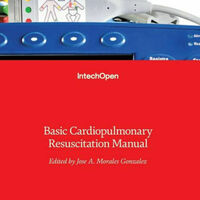Search
Books+
Searching 1,730 books
Search related to the career Respiratory Therapist
Hospital Settings:
Respiratory therapists commonly work in hospitals, where they provide care to patients in various departments such as emergency rooms, intensive care units (ICUs), neonatal ICUs, and general medical-surgical units.
Home Healthcare:
Some respiratory therapists work in home healthcare settings, where they provide respiratory care services to patients who require ongoing treatment but prefer to receive it in the comfort of their own homes.
Long-Term Care Facilities:
Respiratory therapists may also work in long-term care facilities, such as nursing homes or rehabilitation centers, where they provide respiratory care to patients who require extended care and support.
Outpatient Clinics:
In outpatient clinics, respiratory therapists evaluate and treat patients with respiratory conditions on an outpatient basis. They may work in specialized clinics, such as asthma or pulmonary rehabilitation clinics.
Sleep Disorder Centers:
Respiratory therapists play a crucial role in sleep disorder centers, where they conduct sleep studies, monitor patients during sleep, and assist in diagnosing and treating sleep-related breathing disorders.
Research and Education:
Some respiratory therapists work in research or educational settings, where they contribute to the advancement of respiratory care by conducting studies, teaching future respiratory therapists, or developing educational materials.
Medical Equipment Sales and Support:
Respiratory therapists may work for medical equipment companies, providing sales support, training, and technical assistance for respiratory devices and equipment.
Transportation Services:
Respiratory therapists may work for transportation services, such as air ambulance or ground ambulance companies, where they provide respiratory care during patient transfers or emergency transport.
Government Agencies:
Respiratory therapists may be employed by government agencies, such as public health departments or military healthcare facilities, where they provide respiratory care services to specific populations or support public health initiatives.
Telehealth:
With the increasing use of telehealth services, respiratory therapists can provide remote respiratory care consultations and support to patients through video conferencing or other digital platforms.
Source: Various AI tools
Vocational skills
Searched in English.













